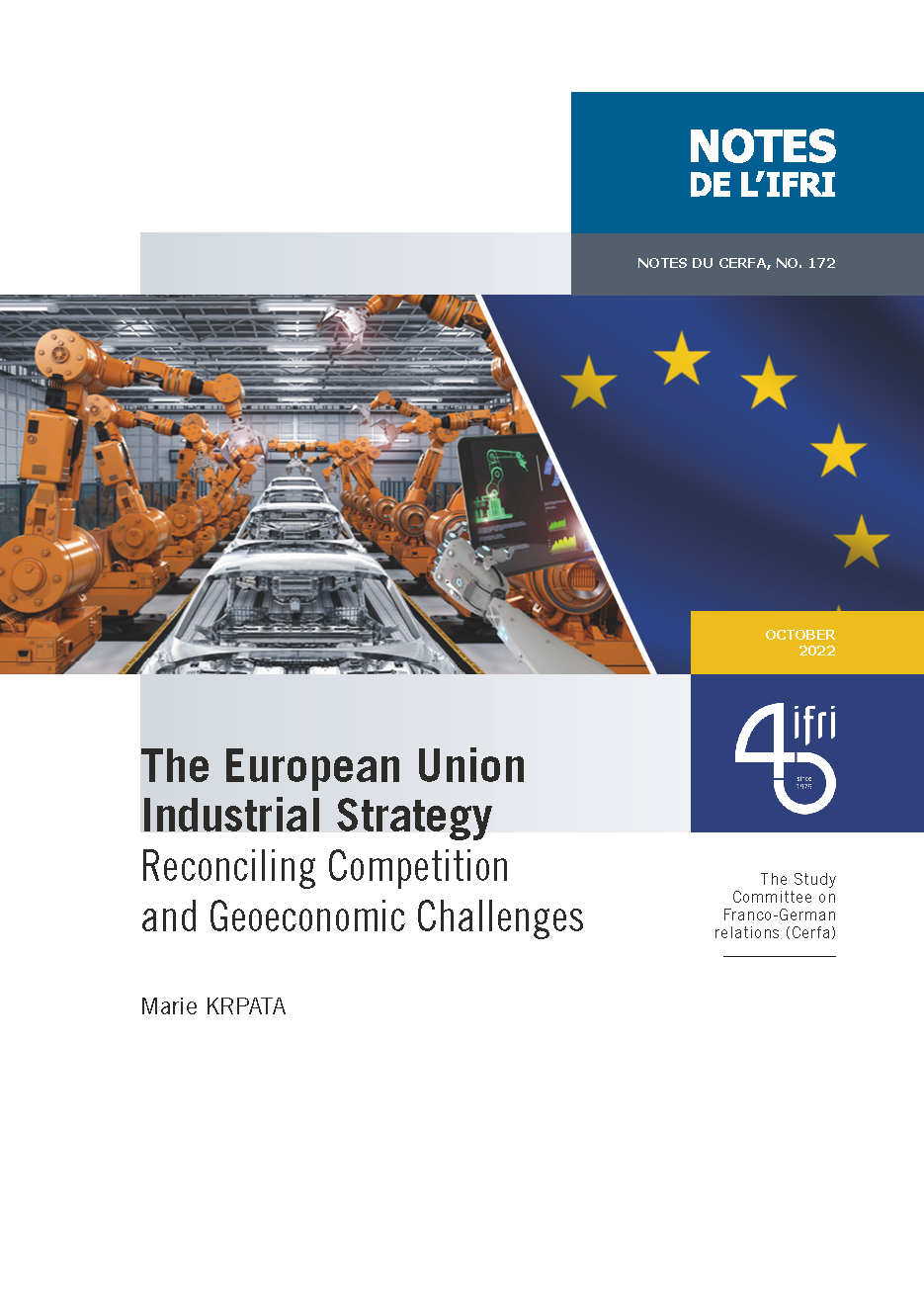The European Union Industrial Strategy: Reconciling Competition and Geoeconomic Challenges

The EU’s basic assumptions, on which it grounds its economic and trade power, are being steadily cast into doubt. The EU’s main trade partners, the US and China, increasingly set their sights on securing their supply chains, which may further a potential decoupling.

This shift is likely to be accelerated in the context of growing geopolitical instability. Multilateralism and international trade principles are increasingly challenged by a weakening of international institutions and the recourse to asymmetric market practices, while technological leadership will be key in the struggle for global leadership. Being fundamentally built on economic openness, the EU is comparatively ill-equipped to respond to these developments. Its biggest economy, Germany, is prompted to assert itself if it does not want to lose in competitiveness. While the EU is developing strategies, policies, and instruments to adapt to this change of circumstances and increase its resilience, a shift in mentalities, leaving behind political and economic short-term interests, will be necessary.
Marie Krpata works as a Research Fellow at the Study Committee on Franco-German Relations (Cerfa) at the French Institute of International Relations – Ifri where she dedicates her research activities to the European Union and the external relations of the Franco-German couple. Before joining the Cerfa she worked in non-governmental and international organizations as well as in consultancies.
Download the full analysis
This page contains only a summary of our work. If you would like to have access to all the information from our research on the subject, you can download the full version in PDF format.
The European Union Industrial Strategy: Reconciling Competition and Geoeconomic Challenges
Related centers and programs
Discover our other research centers and programsFind out more
Discover all our analysesMerz’ European Policy-making: The End of the ‘German Vote’?
Friedrich Merz’s European ambition is to turn Germany, long seen as hesitant into a leading actor within the European Union (EU). To that end, he has pledged to end the “German vote,” a phenomenon that epitomizes the paradox of a country both indispensable and frequently absent from European decision-making.

Securing critical raw material (CRM) value chains – a prerequisite for Europe’s technological resilience
At the heart of economic security, technological resilience is a backbone of the European Union’s (EU) competitiveness. The EU’s energy and digital transitions depend on critical raw materials (CRM).

Reconciling competitiveness and demographic change: a Franco-German imperative
France and Germany are facing parallel demographic shifts that could reshape the future of their economies and their social models. These shifts reflect broader European patterns but are magnified by the central role both nations play in EU governance and competitiveness.
Taking the Pulse: Does France's Political Crisis Weaken Europe's Geopolitical Hand?
While the EU tries to navigate a myriad international challenges, France is experiencing historic political disarray. What impact will instability in Paris have on Europe's geostrategic capacity?










